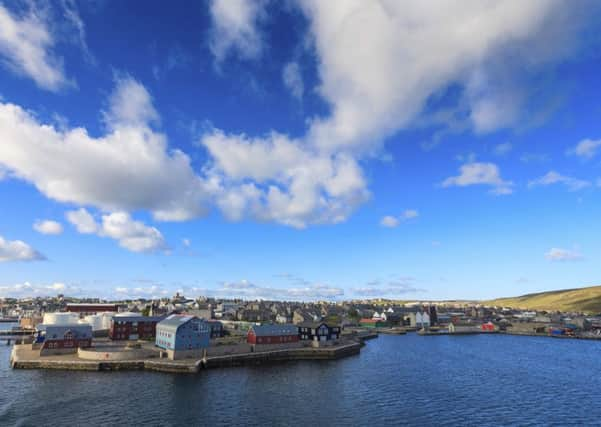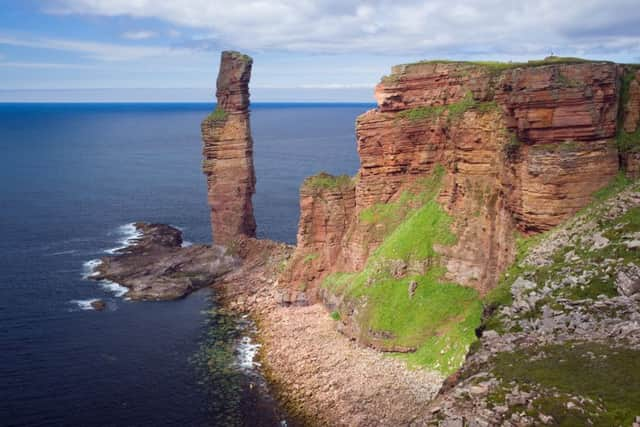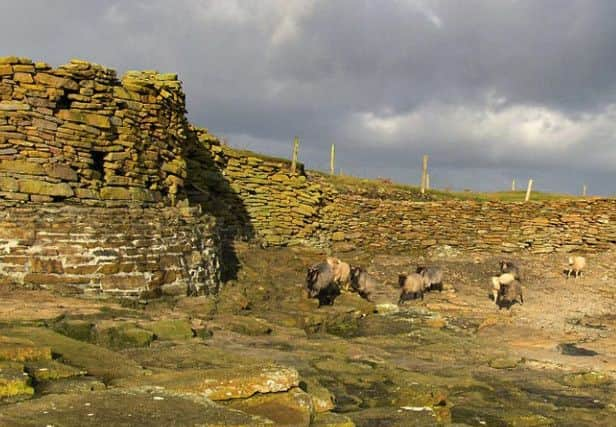A history of names from the Scottish Highlands and Islands


The area has produced some of the most well known Scots in the country’s history.
Here we take a look at the history of surnames that come from the Scottish Highlands and Islands.
Banks


Advertisement
Hide AdAdvertisement
Hide AdThe name originally applied to a hillside or riverside dweller and in the far north of Scotland may have come from the village of Banks, near Kirkwall on Orkney.
Beatson
Bearers of this name can be divided into the Lowlands and Highlands.
The Highland Beatons bore the name Macbeatha - or Macbeth - until the end of the 16th century.


Mac Beaths means ‘son of life’
The first recorded Highland Beatson is Patrick Macbetha of Islay - who was physician to Robert the Bruce. For the next two hundred years, his descendants would often take the same role for the Macdonald chiefs.
Bowie


From the Gaelic word buidhe meaning yellow or fair-haired, it is Highland in origin, usually found in Jura and South Uist.
Brodie
From the lands of Brodie on the Moray Forth, the name means ‘muddy’.
Dallas


Dallas is a place near Forres on the Moray coast - established more than a thousand years before its American namesake.
Advertisement
Hide AdAdvertisement
Hide AdThe name comes from the Old Gaelic term Dallais - meaning ‘at the meadow’.
There were Dallases serving in the Mackintosh regiment at the Battle of Culloden.
Drever
The name comes from Orkney, the second most common name from the island. The word means ‘driver’.
Drevers are now fairly common across most parts of Scotland.
Flett
One of the commonest names in Orkney, Flett is thought to derive from the place name of the same name in neighbouring Shetland.
Gair
Gearr means ‘short’ in Gaelic and the name was recorded in Skye in the 16th century, and later around Inverness.
Gilchrist
A popular Christian name in the Highlands, meaning ‘servant of Christ’.
Gillies
Advertisement
Hide AdAdvertisement
Hide AdAnother Christian name which began to emerge in Scotland in the 1300s, becoming popular in the Hebrides and Badenloch.
The name means ‘Servant of Jesus’.
It is now found across much of Scotland - and beyond.
Goodlad
Coming from Shetland, and now quite rare. The ‘lad’ element originally meant servant.
Gunn
The Gunn clan occupied a position in the northern Highlands, but the clearances of the 19th century deprived them of their ancient territories.
It is still a popular name in the Scottish Highlands.
Harper
The harper was a musical retainer in the households of great Scottish families - mostly in the Highlands.
Inkster
Inkster is a place in Orkney. The name comes from Old Norse eng setr meaning ‘farm meadow’.
Isbister
Shetland place name, which means ‘estuary farm’. The name is still common in some northern islands of Scotland.
Robert Ysbuster of Harray on Orkney is first recorded bearer of the name.
Linklater
Advertisement
Hide AdAdvertisement
Hide AdAn Orkney place name, meaning ‘heather rock’ in Old Norse. It is recorded as a name in the northern isles from the 15th century onwards.
MacAskill, McCaskill
Surname that originated in Lewis and Skye. The name comes from the Gaelic MacAsgaill, derived in turn from the Norse name Arskell or Asketil meaning ‘cauldron of sacrifice to the gods’.
MacAulay, Macaulay
Scottish surname that originated in Lewis, although there are also MacAulays from Dunbartonshire.
In most cases the name comes from the Gaelic MacAmhaoibh, which is in turn the Gaelic variant of the Norse name Olaf meaning ‘ancestor’s descendant’.
MacBeth, Macbeth
Name of possibly Scotland’s most famous monarch. Macbeth, who ruled as king from 1040 to 1057, is forever associated with the historically inaccurate but world-renowned play Macbeth by William Shakespeare.
The play was written in the 1600s and is known in the theatrical world as ‘the Scottish play’. In reality Macbeth was Thane of Moray (and not Glamis or Cawdor) and the Macbeths were an established family in the north of Scotland, with the name meaning ‘son of life’ or ‘son of a man of religion’.
MacDonald, McDonald, Macdonald
The most common surname in Scotland beginning with ‘Mac’. In Gaelic, mac means ‘son of’ and so MacDonald means ‘son of Donald’. Donald is a name of Gaelic origin that means ‘world ruler’ and MacDonald is the anglicized form of the Gaelic Mac Dhomhnuill.
Advertisement
Hide AdAdvertisement
Hide AdThe Macdonalds took their name from a Donald who was the son of the legendary 12th-centruy Hebridean warlord Somerled. The family would dominate the Hebrides in the 13th to 15th centuries from their islands stronghold of Islay, holding the title of Lord of the Isles. Further north, the MacDonalds of Clanranald were pre-eminent in the northern Hebrides. Other MacDonalds were established at Sleat in Skye, in Ardamurchan, and in Glencoe, where in February 1692 the famous massacre took place with 38 MacDonalds being killed in very cold blood by a Government regiment led by Campbells.
MacDonnell
Scottish surname and clan that became established on the Scottish mainland in Glengarry in the Highlands and Keppoch in Lochaber. The name derived from the clan name MacDonald meaning ‘son of Donald’.
MacFie, McPhee
Scottish surname that became established on the small Hebridean island of Colonsay and is the anglicized form of Mac Duibshithe meaning ‘son of Dubshithe’. Duibshithe is an old Gaelic personal name that means ‘dark peace’.
MacIntyre, McIntyre, Macintyre
Scottish surname and clan from Glencoe. The name comes from the Gaelic mac an t-sair meaning ‘son of the carpenter’. MacIntyre is often anglicized to the surname wright.
Mackinnon
Scottish surname that originated chiefly in Mull and Iona.
The name means ‘son of Finegon’ and is the anglicized form of Mac Fhionghuin, with Fingon being a descendant of Kenneth MacAlpine whose name means ‘fair born’.
MacNeill, McNeill
Scottish surname that means ‘son of Neil’. This name comes from the Gaelic Mac Niall meaning ‘son of Niall’, with Neil or Niall meaning ‘champion’. The name is long associated with the island of Barra, where it is said that the name originated from an Irishman called Niall who settled there in the 11th century.
Macquarrie
Scottish surname from the island of Mull. The name comes from the Gaelic Mac Guidhre meaning ‘son of a proud man’. Famous Macquarries include Lachlan Macquarie from the small island of Ulva, near Mull, who was Governor of New South Wales in the early 19th century and is often called ‘the Father of Australia’. Numerous place names and institutions in Australia are called Macquarie after him.
Matheson / Mathieson
Advertisement
Hide AdAdvertisement
Hide AdThe Highland Mathesons are really MacMahons, which means in Gaelic ‘son of bear’.
Nairn
A locality name from Nairn, near Inverness and takes its name from the river.
The first recorded bearer of this name of a chaplain in Inverness in 1361.
Oman / Omand
These names come from the Northern Isles, Orkney and Shetland.
The orogin of the name is the Old Norse name Amund, meaning ‘high gift’.
Shaw
The Highland Shaws take their name from the Gaelic name Sithech - meaning a wolf.
Sweeney
Originally a Highland name, Macsuibhne means ‘son of a pleasant man’
